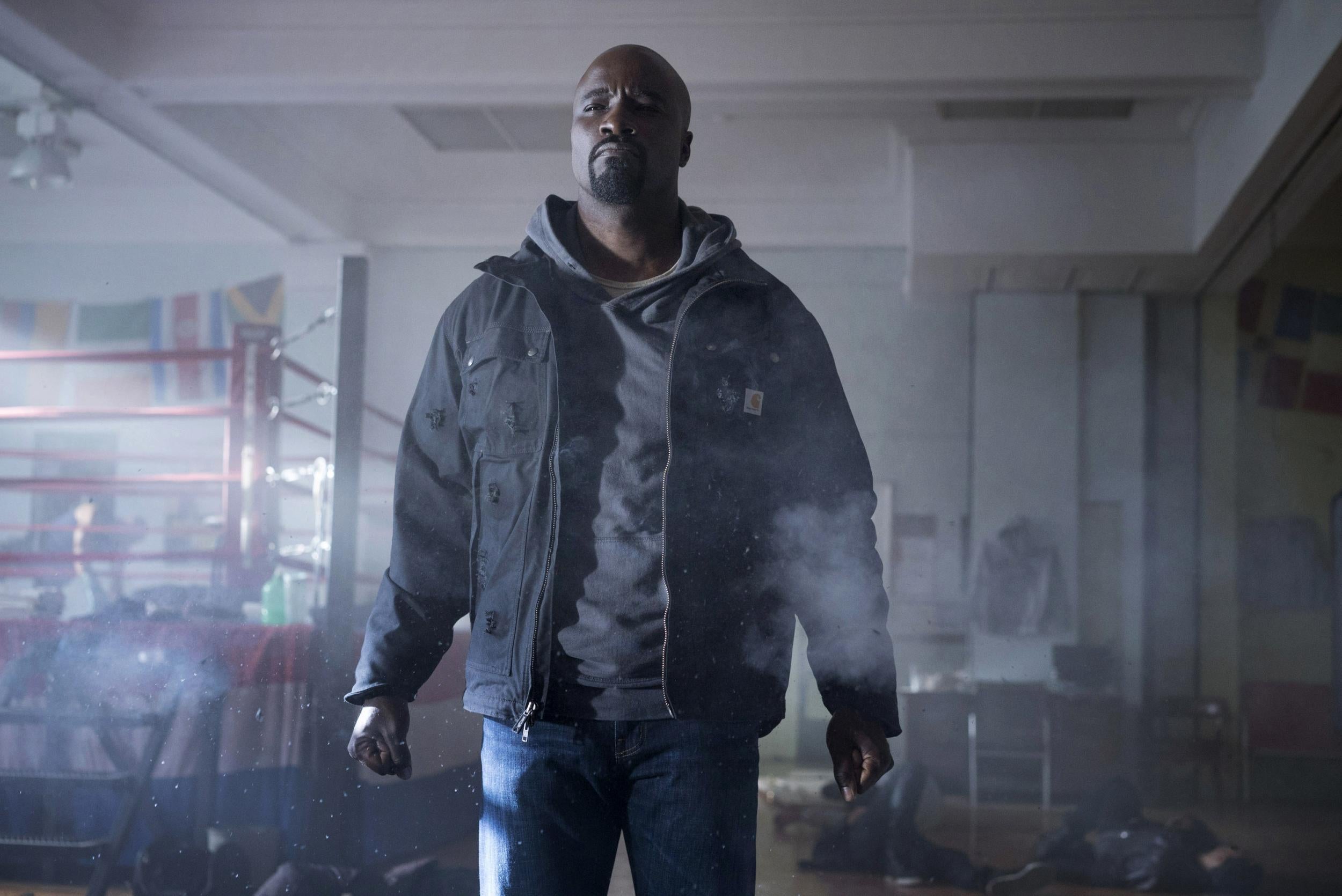Luke Cage review (no spoilers): How Netflix's new Marvel show compares to Jessica Jones and Daredevil
Or, as it should be called, The Luke Cage and Misty Knight show

Since the early-noughties, Marvel Comic adaptations have been billed as the light-hearted sibling to the more serious DC films (mainly thanks to Nolan’s Dark Knight trilogy). From Iron Man to the Avengers, the quiptastic, Whedon-esque blockbusters are somewhat pigeonholed as a certain type of action film, one that doesn’t necessarily reflect the on-screen reality.
When Daredevil first hit Netflix in 2015, it marked a substantial change in Marvel’s Cinematic Universe: not only was the show dealing with a street level superhero, but the overall mood was - as noted in almost every review - darker. Later on in the year, Jessica Jones would continue the newly established atmosphere while debuting the topic of this review, Luke Cage.
For many, including myself, Mike Colter’s bulletproof superhero was one of Jessica Jones’s many highlights, a too-cool-for-school powerhouse with an intriguing past. In his solo-show, Cage’s origins are delved into, the first seven episodes briefly revealing his origin while creating a Harlem built on hip-hop.
First, it should be noted that watching Jessica Jones (and Avengers) is absolutely not a requirement for those looking to invest in Luke Cage; there are fleeting references to ‘the incident’ and Cage’s ‘rebound girl’ but nothing that has a significant impact on the plot. Only when Rosario Dawson’s Claire Temple enters the picture are you reminded of the past Marvel shows, but they quickly explain why she’s in Harlem and not Hell’s Kitchen.

Second, those who have watched Jessica Jones may be worried Cage is not the charismatic presence needed to engage watchers for an entire series, instead, working best as a side character. Plus, while Colter’s performance has a certain charm, the overpowered nature of Cage compared to other Harlem dwellers could seemingly make for quite a boring, non-risky time. Luckily, showrunner Cheo Hodari Coker seems aware of both these problems, allowing other characters to share as much, if not more, screen time with the lead.
Most prominent is Mahershala Ali’s Cottonmouth, Luke Cage’s answer to Kingpin and a nightclub owner who deals with the shady underworld of Harlem. Working with him is Alfre Woodard’s Mariah Dillard, Cottonmouth’s cousin and a politician seeking to bring change (no matter what). Both have intriguing, interlocking histories and together make a brilliant villainous duo. Without spoiling the details, by the time these first seven episodes wrap, neither one is worse than the other, something that makes a very interesting dynamic. Then there’s Misty Knight, played by Simone Missick. If Misty was a more popular comic book character this would no doubt be called The Luke Cage and Misty Knight show because she plays such an integral role in numerous episodes. She steals scenes from underneath Cage’s feet.
The show bouncing between story lines keeps things moving but not at a particularly brisk pace. Luke Cage spends as much time lingering in conversations about who the greatest basketball player of all time is as watching Cage pummel Cottonmouth’s henchmen. By the end of each episode, lots will have happened, but it sometimes doesn’t feel like it. Like the titular hero, the show progresses at a reasonably laid back speed, picking up with the occasional action sequence before settling down into more world building conversation.
For what Luke Cage excels at is making a believable Harlem, one where the inhabitants feel real. World building was recently exemplified in Donald Glover’s Atlanta, a show that spends time with the locals, giving them moments in the spotlight. In Luke Cage, for instance, throughout the first few episodes, we spend a lot of time hanging out in Pop's Barbour shop as members of the community come and go. While each has a part to play in the story, these moments are a lovely reflection of New York life that help Marvel’s Harlem feel real despite the enhanced beings. This is all made better by the music, the hip-hop engaging yet more senses, helping the viewer feel part of Cage’s world.
However, this world building can come at the expense of urgency. When you want things to progress faster, a Cottonmouth scene may go on a little too long; sometimes, you just want to see Cage storm through some thugs. These moments are more frequent than in Daredevil or Jessica Jones, which were both more action packed. (Perhaps the show could have been cut down to eleven episodes rather than thirteen?)
With the first seven episodes under the belt and a huge twist having just occurred, hopefully, the next six will continue the high standard of Netflix’s previous Marvel series. With Luke Cage carefully balancing screen time between villains and heroes, it has so far surpassed the second season of Daredevil, and hopefully won’t drop off like Jessica Jones. According to Missick, things are going to get even better. Fingers crossed.
For comparison, here are my reviews of the first half of Jessica Jones and Daredevil season two.
Join our commenting forum
Join thought-provoking conversations, follow other Independent readers and see their replies
Comments
Bookmark popover
Removed from bookmarks